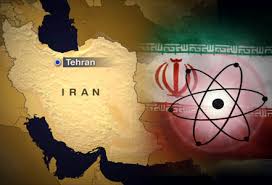Last Sunday, after Iran’s success in striking a deal with the West on its nuclear suit, it successfully arrived to its implementation day. However, observers stressed on the necessity of Tehran avoiding mislaying the commitment through any mistake that could jeopardize the nuclear deal, which has finally relieved the economic sanctions that shackled Iran’s economy for decades.
In view of that, observers see the situation with a delicate view that has been contradicted by risks attempted by the fundamentalist party and the Army of Guardians. Risks which both of those sides have been taking prior to the upcoming, February elections, at the Islamic Consultative Assembly, which might in turn result to landing Iran back to ground zero.
Nonetheless, the Iranian reform party affiliated journalism celebrated the implementation of the nuclear deal and welcomed the “first day without sanctions”.
On the other hand, Fundamentalist media chose to criticize the agreement. “Yalasarat” a newspaper affiliated with the Iranian-Hezbollah choose to flash a headline “Rouhani! Reassess, Resign, or Retire”, which is a clear proposition for Rouhani on his future in authority. The article also wrote on how Rouhani could be the first Iranian President to rule for one term only.
All the aforementioned indicate the fundamentalists’ play to foil the nuclear agreement and a plan for them to gather public opinion in order to dominate the following parliament.
Moreover, the Iranian government alongside its supporters, a combination that currently goes by the reform party, endeavor on taking over both parliament and the Assembly of Experts in the upcoming elections, on the bases of their success on scoring a deal with the West on July 2015.
The nuclear deal stipulates that if any dispute takes place during the agreement’s operation, a shared committee comprising of all deal parties shall look into the dispute for 15 days, during the implementation process, if the committee is deficient on resolving the issue then the dispute is taken over to Foreign Ministers.
However, Foreign Ministers will also have a 15-days-window to find a resolution; if matters are still not resolved the situation will then be taken to a consultative committee made up of three responsible participants, one of which is dependent.
If the consultative committee fails in resolving the issue it is then referred to the UN Security Council, which in turn votes on lifting the ban on Iran or resuming it, and in the case of the Security Council not being able to reach a decision, UN sanctions on Iran shall be imposed again.

